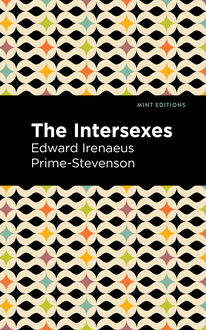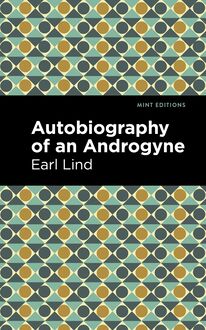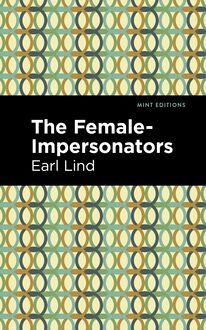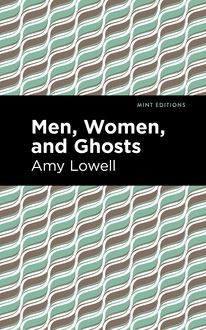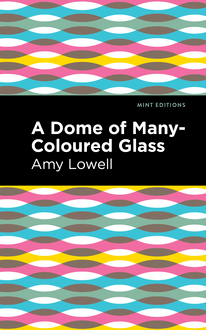-
 Univers
Univers
-
 Ebooks
Ebooks
-
 Livres audio
Livres audio
-
 Presse
Presse
-
 Podcasts
Podcasts
-
 BD
BD
-
 Documents
Documents
-
- Cours
- Révisions
- Ressources pédagogiques
- Sciences de l’éducation
- Manuels scolaires
- Langues
- Travaux de classe
- Annales de BEP
- Etudes supérieures
- Maternelle et primaire
- Fiches de lecture
- Orientation scolaire
- Méthodologie
- Corrigés de devoir
- Annales d’examens et concours
- Annales du bac
- Annales du brevet
- Rapports de stage
La lecture à portée de main

Vous pourrez modifier la taille du texte de cet ouvrage
Découvre YouScribe en t'inscrivant gratuitement
Je m'inscrisDécouvre YouScribe en t'inscrivant gratuitement
Je m'inscrisEn savoir plus
Vous pourrez modifier la taille du texte de cet ouvrage
En savoir plus

Description
Howards End (1910) is a novel by English author E.M. Forster. Inspired by his interactions with the famous Bloomsbury Group of writers and intellectuals, as well as by his personal experience growing up with a large inheritance on the family estate of Rooks Nest, Howards End has been recognized as one of the finest novels ever written in English.
The story loosely follows the lives of three families: the Wilcoxes, whose wealth derives from the exploitation of British colonies; the Basts, an impoverished couple; and the Schlegels, half-German sisters who find themselves set between the vastly opposing classes of their peers. Much of the novel is set on the Wilcox estate, known as Howards End, a symbol of fortune and a reminder of the generational implications of hoarded wealth. When Ruth Wilcox moves to London, she befriends her neighbor Margaret Schlegel. On her deathbed, and in secret, Ruth leaves a note instructing that Howards End be left to Margaret in her will, bypassing her family entirely. When her son Henry, a widower, finds out, he destroys the note, ensuring that the estate remains within the family. Years later, when the two meet again, Henry proposes to Margaret, bringing the Wilcox and Schlegel families closer together. But when her sister Helen brings the struggling Leonard and Jacky Bast to a party at Howards End, Henry, who recognizes Jacky as a former mistress, believes he is being set up, and breaks off the engagement. Although they reconcile, Margaret is driven apart from her sisters, who resent the Wilcoxes and distrust Henry. But when Helen becomes pregnant by Leonard, and a tragic event destroys several lives, the families are brought together once more, and both Margaret and Henry are forced to choose between the fortune they stand to gain and the love they stand to lose.
E.M. Forster’s Howards End is a masterpiece, a brilliant study of family, wealth, romance, and secrecy that captures the depravity of the English aristocracy without losing what sets it apart—an undeterred sense of humanity.
With a beautifully designed cover and professionally typeset manuscript, this edition of E.M. Forster’s Howards End is a classic of English literature reimagined for modern readers.
Sujets
Informations
| Publié par | Mint Editions |
| Date de parution | 01 décembre 2020 |
| Nombre de lectures | 0 |
| EAN13 | 9781513272788 |
| Langue | English |
| Poids de l'ouvrage | 2 Mo |
Informations légales : prix de location à la page 0,0500€. Cette information est donnée uniquement à titre indicatif conformément à la législation en vigueur.
Extrait
Howards End
E.M. Forster
Howards End was first published in 1910.
This edition published by Mint Editions 2020.
ISBN 9781513267784 | E-ISBN 9781513272788
Published by Mint Editions®
minteditionbooks.com
Publishing Director: Jennifer Newens
Design & Production: Rachel Lopez Metzger
Typesetting: Westchester Publishing Services
C ONTENTS Chapter 1 Chapter 2 Chapter 3 Chapter 4 Chapter 5 Chapter 6 Chapter 7 Chapter 8 Chapter 9 Chapter 10 Chapter 11 Chapter 12 Chapter 13 Chapter 14 Chapter 15 Chapter 16 Chapter 17 Chapter 18 Chapter 19 Chapter 20 Chapter 21 Chapter 22 Chapter 23 Chapter 24 Chapter 25 Chapter 26 Chapter 27 Chapter 28 Chapter 29 Chapter 30 Chapter 31 Chapter 32 Chapter 33 Chapter 34 Chapter 35 Chapter 36 Chapter 37 Chapter 38 Chapter 39 Chapter 40 Chapter 41 Chapter 42 Chapter 43 Chapter 44
Chapter 1
One may as well begin with Helen’s letters to her sister.
Howards End,
Tuesday
D EAREST M EG ,
It isn’t going to be what we expected. It is old and little, and altogether delightful—red brick. We can scarcely pack in as it is, and the dear knows what will happen when Paul (younger son) arrives to-morrow. From hall you go right or left into dining-room or drawing-room. Hall itself is practically a room. You open another door in it, and there are the stairs going up in a sort of tunnel to the first-floor. Three bed-rooms in a row there, and three attics in a row above. That isn’t all the house really, but it’s all that one notices—nine windows as you look up from the front garden.
Then there’s a very big wych-elm—to the left as you look up—leaning a little over the house, and standing on the boundary between the garden and meadow. I quite love that tree already. Also ordinary elms, oaks—no nastier than ordinary oaks—pear-trees, apple-trees, and a vine. No silver birches, though. However, I must get on to my host and hostess. I only wanted to show that it isn’t the least what we expected. Why did we settle that their house would be all gables and wiggles, and their garden all gamboge-coloured paths? I believe simply because we associate them with expensive hotels—Mrs. Wilcox trailing in beautiful dresses down long corridors, Mr. Wilcox bullying porters, etc. We females are that unjust.
I shall be back Saturday; will let you know train later. They are as angry as I am that you did not come too; really Tibby is too tiresome, he starts a new mortal disease every month. How could he have got hay fever in London? and even if he could, it seems hard that you should give up a visit to hear a schoolboy sneeze. Tell him that Charles Wilcox (the son who is here) has hay fever too, but he’s brave, and gets quite cross when we inquire after it. Men like the Wilcoxes would do Tibby a power of good. But you won’t agree, and I’d better change the subject.
This long letter is because I’m writing before breakfast. Oh, the beautiful vine leaves! The house is covered with a vine. I looked out earlier, and Mrs. Wilcox was already in the garden. She evidently loves it. No wonder she sometimes looks tired. She was watching the large red poppies come out. Then she walked off the lawn to the meadow, whose corner to the right I can just see. Trail, trail, went her long dress over the sopping grass, and she came back with her hands full of the hay that was cut yesterday—I suppose for rabbits or something, as she kept on smelling it. The air here is delicious. Later on I heard the noise of croquet balls, and looked out again, and it was Charles Wilcox practising; they are keen on all games. Presently he started sneezing and had to stop. Then I hear more clicketing, and it is Mr. Wilcox practising, and then, “a-tissue, a-tissue”: he has to stop too. Then Evie comes out, and does some calisthenic exercises on a machine that is tacked on to a green-gage-tree—they put everything to use—and then she says “a-tissue,” and in she goes. And finally Mrs. Wilcox reappears, trail, trail, still smelling hay and looking at the flowers. I inflict all this on you because once you said that life is sometimes life and sometimes only a drama, and one must learn to distinguish t’other from which, and up to now I have always put that down as “Meg’s clever nonsense.” But this morning, it really does seem not life but a play, and it did amuse me enormously to watch the W’s. Now Mrs. Wilcox has come in.
I am going to wear [omission]. Last night Mrs. Wilcox wore an [omission], and Evie [omission]. So it isn’t exactly a go-as-you-please place, and if you shut your eyes it still seems the wiggly hotel that we expected. Not if you open them. The dog-roses are too sweet. There is a great hedge of them over the lawn—magnificently tall, so that they fall down in garlands, and nice and thin at the bottom, so that you can see ducks through it and a cow. These belong to the farm, which is the only house near us. There goes the breakfast gong. Much love. Modified love to Tibby. Love to Aunt Juley; how good of her to come and keep you company, but what a bore. Burn this. Will write again Thursday.
H ELEN
Howards End
Friday
D EAREST M EG ,
I am having a glorious time. I like them all. Mrs. Wilcox, if quieter than in Germany, is sweeter than ever, and I never saw anything like her steady unselfishness, and the best of it is that the others do not take advantage of her. They are the very happiest, jolliest family that you can imagine. I do really feel that we are making friends. The fun of it is that they think me a noodle, and say so—at least, Mr. Wilcox does—and when that happens, and one doesn’t mind, it’s a pretty sure test, isn’t it? He says the most horrid things about woman’s suffrage so nicely, and when I said I believed in equality he just folded his arms and gave me such a setting down as I’ve never had. Meg, shall we ever learn to talk less? I never felt so ashamed of myself in my life. I couldn’t point to a time when men had been equal, nor even to a time when the wish to be equal had made them happier in other ways. I couldn’t say a word. I had just picked up the notion that equality is good from some book—probably from poetry, or you. Anyhow, it’s been knocked into pieces, and, like all people who are really strong, Mr. Wilcox did it without hurting me. On the other hand, I laugh at them for catching hay fever. We live like fighting-cocks, and Charles takes us out every day in the motor—a tomb with trees in it, a hermit’s house, a wonderful road that was made by the Kings of Mercia—tennis—a cricket match—bridge and at night we squeeze up in this lovely house. The whole clan’s here now—it’s like a rabbit warren. Evie is a dear. They want me to stop over Sunday—I suppose it won’t matter if I do. Marvellous weather and the views marvellous—views westward to the high ground. Thank you for your letter. Burn this.
Your affectionate
H ELEN
Howards End,
Sunday
D EAREST, DEAREST M EG,
I do not know what you will say: Paul and I are in love the younger son who only came here Wednesday.
Chapter 2
Margaret glanced at her sister’s note and pushed it over the breakfast-table to her aunt. There was a moment’s hush, and then the flood-gates opened.
“I can tell you nothing, Aunt Juley. I know no more than you do. We met—we only met the father and mother abroad last spring. I know so little that I didn’t even know their son’s name. It’s all so—” She waved her hand and laughed a little.
“In that case it is far too sudden.”
“Who knows, Aunt Juley, who knows?”
“But, Margaret, dear, I mean, we mustn’t be unpractical now that we’ve come to facts. It is too sudden, surely.”
“Who knows!”
“But, Margaret, dear—”
“I’ll go for her other letters,” said Margaret. “No, I won’t, I’ll finish my breakfast. In fact, I haven’t them. We met the Wilcoxes on an awful expedition that we made from Heidelberg to Speyer. Helen and I had got it into our heads that there was a grand old cathedral at Speyer—the Archbishop of Speyer was one of the seven electors—you know—‘Speyer, Maintz, and Koln.’ Those three sees once commanded the Rhine Valley and got it the name of Priest Street.”
“I still feel quite uneasy about this business, Margaret.”
“The train crossed by a bridge of boats, and at first sight it looked quite fine. But oh, in five minutes we had seen the whole thing. The cathedral had been ruined, absolutely ruined, by restoration; not an inch left of the original structure. We wasted a whole day, and came across the Wilcoxes as we were eating our sandwiches in the public gardens. They too, poor things, had been taken in—they were actually stopping at Speyer—and they rather liked Helen’s insisting that they must fly with us to Heidelberg. As a matter of fact, they did come on next day. We all took some drives together. They knew us well enough to ask Helen to come and see them—at least, I was asked too, but Tibby’s illness prevented me, so last Monday she went alone. That’s all. You know as much as I do now. It’s a young man out of the unknown. She was to have come back Saturday, but put off till Monday, perhaps on account of—I don’t know.”
She broke off, and listened to the sounds of a London morning. Their house was in Wickham Place, and fairly quiet, for a lofty promontory of buildings separated it from the main thoroughfare. One had the sense of a backwater, or rather of an estuary, whose waters flowed in from the invisible sea, and ebbed into a profound silence while the waves without were still beating. Though the promontory consisted of flats—expensive, with cavernous entrance halls, full of concierges and palms—it fulfilled its purpose, and gained for the older houses opposite a certain measure of peace.
These, too, would be swept away in time, and another promontory would arise upon their site, as humanity piled itself higher and higher on the precious soil of London.
Mrs. Munt had her own method of interpreting her nieces. She decided that Margaret was a little hysterical, and was trying to gain time by a torrent of ta
Attention
En entrant sur cette page, vous certifiez :
- 1. avoir atteint l'âge légal de majorité de votre pays de résidence.
- 2. avoir pris connaissance du caractère érotique de ce document.
- 3. vous engager à ne pas diffuser le contenu de ce document.
- 4. consulter ce document à titre purement personnel en n'impliquant aucune société ou organisme d'État.
- 5. vous engager à mettre en oeuvre tous les moyens existants à ce jour pour empêcher n'importe quel mineur d'accéder à ce document.
- 6. déclarer n'être choqué(e) par aucun type de sexualité.
YouScribe ne pourra pas être tenu responsable en cas de non-respect des points précédemment énumérés. Bonne lecture !
-
 Univers
Univers
-
 Ebooks
Ebooks
-
 Livres audio
Livres audio
-
 Presse
Presse
-
 Podcasts
Podcasts
-
 BD
BD
-
 Documents
Documents
-
Jeunesse
-
Littérature
-
Ressources professionnelles
-
Santé et bien-être
-
Savoirs
-
Education
-
Loisirs et hobbies
-
Art, musique et cinéma
-
Actualité et débat de société
-
Jeunesse
-
Littérature
-
Ressources professionnelles
-
Santé et bien-être
-
Savoirs
-
Education
-
Loisirs et hobbies
-
Art, musique et cinéma
-
Actualité et débat de société
-
Actualités
-
Lifestyle
-
Presse jeunesse
-
Presse professionnelle
-
Pratique
-
Presse sportive
-
Presse internationale
-
Culture & Médias
-
Action et Aventures
-
Science-fiction et Fantasy
-
Société
-
Jeunesse
-
Littérature
-
Ressources professionnelles
-
Santé et bien-être
-
Savoirs
-
Education
-
Loisirs et hobbies
-
Art, musique et cinéma
-
Actualité et débat de société
- Cours
- Révisions
- Ressources pédagogiques
- Sciences de l’éducation
- Manuels scolaires
- Langues
- Travaux de classe
- Annales de BEP
- Etudes supérieures
- Maternelle et primaire
- Fiches de lecture
- Orientation scolaire
- Méthodologie
- Corrigés de devoir
- Annales d’examens et concours
- Annales du bac
- Annales du brevet
- Rapports de stage
